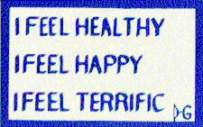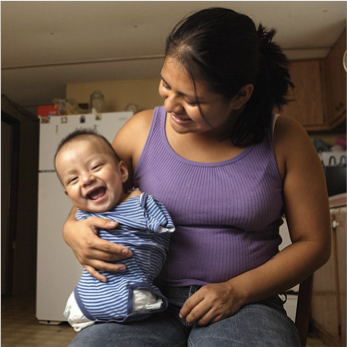Lesson Plan MENU
First Lesson Plan- Plato (Boje
2nd Lesson Plan - Hegel and Marx/Engels (Boje)
3rd Lesson Plan - Follett (Mabel and Boje)
First Lesson plan has only 6 Process Steps:

STEP 1 (keep this entire step to less than 10 minutes) Healthy Happy Terrific [no mor that 2 minutes](new one for each class.
e.g. For today HHT exercise: Stand in circle, first person say one thing they are feeling 'Healthy' about "I fell Healthy because ....", and point to next person to answer 'What do you feel Healthy about today?', keep doing this until circle is completed.
And (8 minute max) ice breaker from Augusto Boal's 200 Exercises and Games for Actors and Non-Actors (book on line)(Choose among the 200 exercises) Choose exercise that has a PROCESS FOCUS, & write your 2 Homework Questions for class on board (please run them by Boje several days before): One question based on assigned course texts/articles, other question based on student's field study of Relational Process Ontology (Use TEXTS portion of syllabus, e.g. Hultin, L., & Mähring, M. (2017). How practice makes sense in healthcare operations: Studying sensemaking as performative, material-discursive practice. Human Relations, 2017, Vol. 70(5) 566–590.). Please include references in answers. Answers due next class period and during term meet at least 3 times at Frenger Food Court Monday noon to 2pm to get help on project and lesson plans.
e.g. "From Boal (1994, 200 Exercises)" today I begin with what Boal sees as 'dialectic':
"That then is a summary of the systems used by our actors at the Arena Theatre, resting on the basic notions (a) that the central idea of the play determines the central idea of the character, translated into terms of dialectical will (the will and counter-will), and (b) that from the conflict of wills is born the action (the quantitative and qualitative variations). For us, this was the nucleus of the character and its ‘motor’" Boal, 1994: 47).
"Debate, the conflict of ideas, dialectics, argument and counter-argument – all this stimulates, arouses, enriches, prepares the spectator for action in real life" (IBID., p. 259).
e.g. Boal exercise: Colombian hypnosis exercise (p. 51):
"One actor holds her hand palm forward, fingers upright, anything between 20 and 40 centimeters away from the face of another, who is then as if hypnotised and must keep his face constantly the same distance from the hand of the hypnotizer, hairline level with her fingertips, chin more or less level with the base of her palm. The hypnotizer starts a series of movements with her hand, up and down, right and left, backwards and forwards, her hand vertical in relation to the ground, then horizontal, then diagonal, etc. – the partner must contort his body in every way possible to maintain the same distance between face and hand, so that face and hand remain parallel.
STEP 2:(45 minutes) FILMING OUR OWN YOUTUBE: You as co-facilitators are scheduled to cover one Relational Process Ontology Method at a time. Instead of you doing a Slide presentation, help Boje film a 10 to 30 minute (max) presentation that will go onto YouTube and cover aspects of TEXTS portion of syllabus, relevant selected texts/articles on the schedule RPO. Facilitator host discussion (15 minutes after the 30 minute Boje filming): Here is first one: Boje's YouTube video (34 minutes) on 4th Wave Grounded Theory and the ways Plato's Dialectic can help organizational research methods with a 'conversational interviewing' method, and a double twisted spiral. For your co-facilitation, meet up with Boje outside class and help do a 10 to 30 minute video that goes on YouTube on your scheduled topic.
TABLE OF CONTENTS
CHAPTERS ON RELATIONAL PROCESS ONTOLOGIES (RPOs):
i. Intro to 4th Wave Grounded Theory
- RPO1 - Plato's Dialectic of Double Twisted Spiral (See Boje's YouTube video (34 minutes) on 4th Wave Grounded Theory and the ways Plato's Dialectic can help organizational research methods with a 'conversational interviewing' method, and a double twisted spiral)
- PRO2 - Hegel's Dialectic
- PRO3 - Marx & Engel's Historical Materialism Dialectic
- RPO4 - Follett’s Relational Process Ontology
- RPO5 - Heidegger’s Critical Ontology
- RPO6 - Latour’s Actor Network Theory
- RPO7 - Barad’s Sociomateriality of Agential Realism
- RPO8 - Žižek’s Revival of Hegelian Dialectics
- RPO9 - Bhaskar’s Critical Realism Dialectics
- RPO10 - Brier’s Cybersemiotics Dialectic approach to Organization Research
- RPO11 - Deleuze’s Rhizomatics and Multifractality in Organization Research
- RPO12- Savall’s Socioeconomic, Qualimetrics and Tetranormalizing
- RPO13 - True Storytelling Praxis
STEP 3: In your facilitator's lesson plan, DEVELOP a HIGHLY INTERACTIVE class activity (25 to 35 minutes) that puts the students into pairs, or a field observation of system, or some way of digging into the schedule of texts, and to work on a homework questions, so they understand the dialectic involved in the RPO you are covering. e.g. See Boje's YouTube video (34 minutes) on 4th Wave Grounded Theory and the ways Plato's Dialectic can help organizational research methods with a 'conversational interviewing' method, and a double twisted spiral
e.g. Today: We will practice the Platonic Dialectical Interviewing Method: Form pairs, and choose one person to be Socrates, and other to be the Client. Socrates: "How do you define the concept, 'organizational system'?
Platonic Dialectical Dialogue Steps (summary of conversational interview method):
1. Socrates: How to you define concept of an organizational system?
Client Answer - here
Socrates negates the client's definition of system with things that the definition does not contain
2. Socrates: What are the different types of organizational systems?
Client Answer - here
Socrates points out other types of systems
3. Socrates: What are subtypes of (pick one from # 2)?
Client Answer - here
Socrates points out other subtypes, and perhaps how subtypes form interactions
4. Socrates: What is the difference between your Ideal type of systems (definition) and the everyday 'real' life experience you have of that system?
Client Answer - here
Socrates follows up with - something on Greek Square virtues (True, Just, Good (equitable), & Beautiful aesthetic) and asks how one of these virtues is accomplished in the client's own life path (see Kirkeby The Protreptic)
5. Socrates: Client, how has your definition of the concept of system changed? Do you wish to amend your first answer? Or, is your definition unable to capture what is an organizational system? (Note: most people have a sense of what their concept means, but have not expressed it so it remains an 'untold story', and perhaps one that cannot be told in words).
Client Answer - here
Disclaimer: Plato does not use steps. For purely pedagogic purposes I created some steps.
CALL a 10 to 15 minute BREAK
STEP 4: (15 minutes max) After break, Sabine's time - to work with us on either Heidegger or Hegel text so we understand how their respective dialectics differs from the schedule RPO dialectic of the week in our schedule
e.g. for today, so as not to put Sabine on spot on first day of class, we will talk about differences between Plato's dialectic method (concept defining conversations) and the Hegel dialectic, and something about Marx & Engels' dialectic, which is different from both Plato and Hegel.
STEP 5: do a 2 minutes Q & A with class to see what worked well today, and what could be better (2 minutes) to benefit the next facilitator with process of continuous improvement.
Question: What worked for your learning today? What can we do better for you?
STEP 6. Good News! In exchange for facilitating, helping with feedback on classmate's homework, co-facilitators will not do assigned written homework (they are expected to help with YouTube creation).
Any questions, please see instructor to do this after class or office hours, Frenger Food Court Monday noon to 2PM. Thank you.
Note: each student in the class is requested to meet with instructor out of class at office hours or appointment time to go over their term project, and get it to publishable quality.
All are invited to present term project at the annual Storytelling conference Http://davidboje.com/quantum in December
Boje in the film on day one, speaks about slavery in Plato's time, and ways slavery is in THE REPUBLIC differently in Timocracy (warriors conquest of other nations for slaves), Oligarchy (buy the wage-slaves), Democracy (media drones), Tyrants (clones of tyrant, devotees), and the possible freedom from msot slavery in Plato's Philoosopher King ideal type of system.
Below is work Mabel and Boje are doing are modern-day slavery in USA:
A Story of Farmworkers changing Process Relational Ontology of Slavery in Tomato Agribusiness
The work process:
Tomato Picker - Rough Cut
The Consequences of sociomateriality conditions of modern-day slavery

Carlos Candelario, known as Carlitos, was born Dec. 17 without arms or legs. http://www.mypalmbeachpost.com/news/carlitos/
The field in Immokalee where all six parents worked is operated by Ag-Mart, a produce company based in Plant City that markets tomatoes under the name Santa Sweets. At the entrance to that field is posted a list of 38 separate products involving some 30 chemicals used on the crops during the year.
The EPA report on metribuzin specifically warns that "field workers" are at risk if they inhale the chemical. The warning calls for special protective equipment to be used when it is applied and also requires that workers wait 12 hours before entering a field where the chemical has been employed.
2010 Florida Modern-Day Slavery Museum
The Florida Modern-Day Slavery Museum consists of a cargo truck outfitted as a replica of the truck involved in a recent slavery ... Ground Zero for Modern Day Slavery
Estabrook.png)
https://www.youtube.com/watch?v=fN48HPG_8T8
The Ag-industry hides where and how it is produced from consumers
Huge differences between Ag-industry tomato and what you grow in your garden
Florida winter tomato is the poster child for many of the problems of large-scale farming
$600 million sales at farm gate, controlled by 12 mega farms
Harvesting is by hand
for more interviews with workers see https://www.youtube.com/watch?v=zBc4cOg9-ks&t=530s


